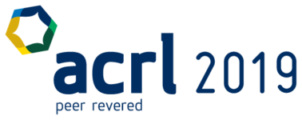Session Description:
Why dont students like e-textbooks? What can you do to increase preference while also creating opportunities to expand library services? Based on a quasi-experiment conducted with undergraduates, this paper demonstrates the impact of training on preference for and usage of e-textbooks. Armed with this data, librarians can offer instructional activities to increase student preference and use, and at the same time revitalize relationships with faculty and students at their institutions. Create a win-win scenario by helping students maximize both their budgets and their learning, while simultaneously promoting the library as an expert resource for the latest content and technologies.
